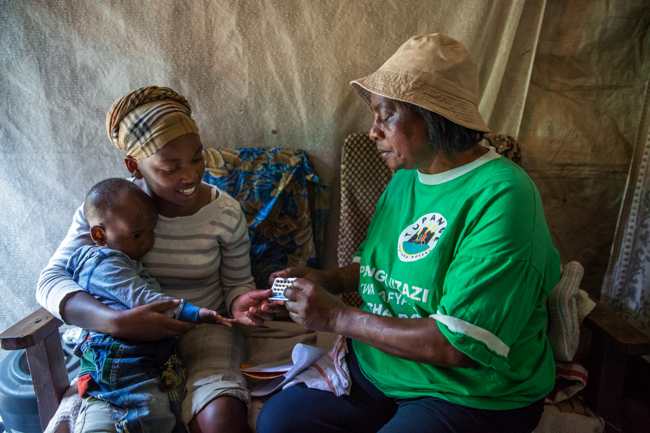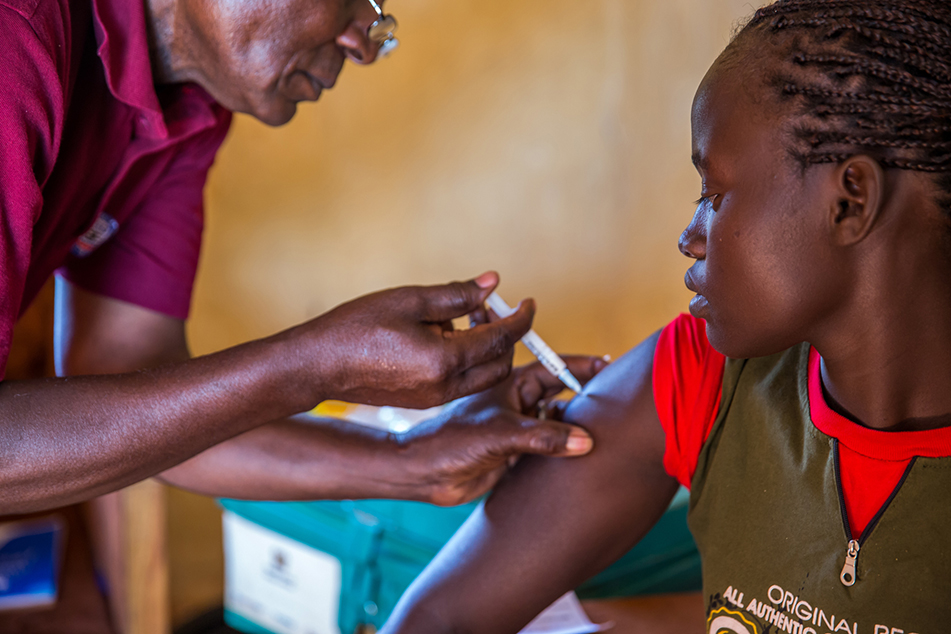Photo credit: Sala Lewis
Meet Puritan and Alexander.
They are community health volunteers (CHVs), part of an
important network across Kenya working to provide health
education and services to families who may not otherwise
have access to care. CHVs have been vital in creating
demand for family planning at the community level, as
well as linking women and families to the health system.
In Kenya, CHVs are selected by their neighbors and live
in the areas they serve. For Puritan and Alexander,
these communities are starkly different. Puritan lives
in Lunga Lunga, a densely populated informal settlement
in Nairobi. Alexander is from Tharaka Nithi, a rural
county in Eastern Kenya, where many must travel long
distances to reach a health facility. But both go
door-to-door, discussing the health benefits of family
planning, dispelling myths and misconceptions, and
counseling women and their partners to find a
contraceptive method of their choice. The CHVs recognize
the importance of family planning for the health of
women and children, and the broader economic and social
challenges their neighbors face in their day-to-day
lives.
The community health volunteer model is not unique to
Kenya, as many countries recognize the importance of
linking communities with health facilities. However,
significant questions remain around how to best organize
and compensate CHVs. In Kenya the national government
recommends that CHVs should be paid, but most are not,
which makes retention a challenge. Given its impact, the
sustainability of the CHV model is an issue Kenya must
address as it looks to consolidate and build on recent
improvements in family planning.
Click through the photos below to learn more about the
work of CHVs in Kenya.










